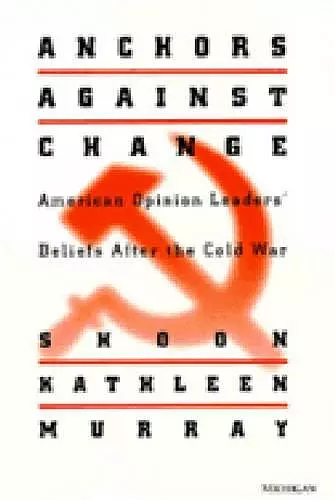Anchors against Change
American Opinion Leaders' Beliefs After the Cold War
Format:Paperback
Publisher:The University of Michigan Press
Published:21st Feb '02
Currently unavailable, and unfortunately no date known when it will be back

The end of the Cold War also ended the organizing paradigm of American foreign policy since World War II, containment of Communism. How the attitudes towards American involvement abroad of opinion leaders were affected by the collapse of the Soviet Union is critical in predicting the shape of future American foreign policy. Shoon Murray investigates how American leaders' foreign policy opinions changed once they revised their views about the Soviet Union and explores what this tells us about the sources and structure of their belief system.
The end of the Cold War provides a rare opportunity to explore the causal connection between external circumstances and Americans' belief systems. While it is true that, for Americans, the denouement of the Cold War was a peaceful process, and therefore less shocking and traumatic than some past wars, the event still marked an enormous change within the international environment. If Americans' perceptions about the former Soviet Union did in fact dictate many other foreign policy beliefs then we could expect deep attitudinal change to accompany the end of the Cold War.
Murray argues that the upheavals in the international system had only limited effect on the foreign policy beliefs of American leaders and that opinion leaders have adhered to their old postures about how the United States should conduct itself in the world. Murray explains this continuity by finding a strong relationship between the domestic beliefs of leaders and their orientation toward American activities abroad. Domestic political orientation was a stronger influence on the elite's attitude toward foreign policy than the elite's image of the Soviet Union. Murray suggests that elite political actors apply the same or kindred values to circumstances at home and abroad.
This book will appeal to social scientists interested in studying elite opinion as well as students of the foreign policy process and those interested in the formation of American foreign policy in the post cold war era.
Shoon Kathleen Murray is Assistant Professor of Political Science, School of International Service, American University, Washington, D.C.
ISBN: 9780472088751
Dimensions: unknown
Weight: unknown
224 pages